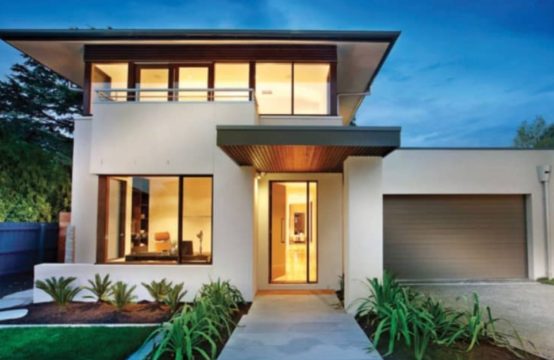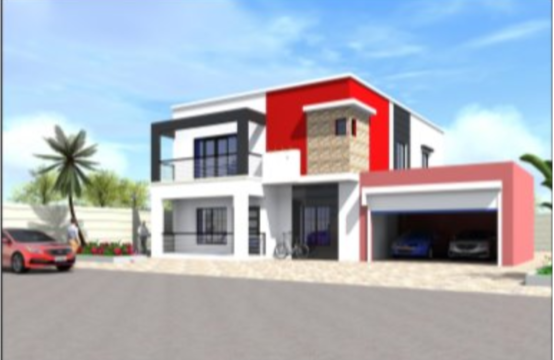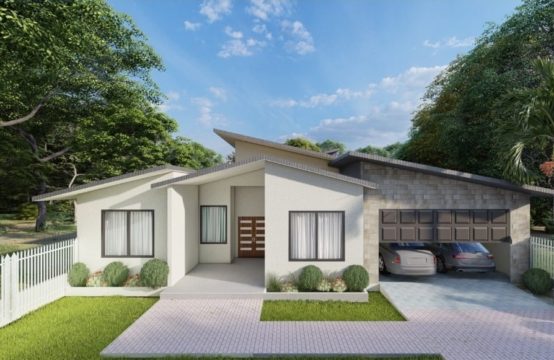Cameroon is the largest economy in the Central African Economy and Monetary Community (CEMAC), however, the country is considered a lower-middle-income nation and classified as a least developed country. Notwithstanding, in the last five years, Cameroon has recorded a slow-paced Gross Domestic Product (GDP) growth, reportedly hindered by the fall of oil prices, Boko Haram security challenges in the north, and the ongoing secessionist insurgency in the Northwest and Southwest regions of the country.
With a population of just over 25 million inhabiting an area of 475 440 km2, Cameroon recorded an annual population growth rate of 2.62 per cent in 2019 and 2.59 per cent in 2020, coupled with a population density of 56 per Km2 (145 people per m2). Cameroon also recorded an urbanization rate of 55.7 per cent in 2019, which rose to 56.3 per cent in 2020. As such, there is a growing demand for more houses in the already deficit housing market, signaling a huge opportunity for its emerging real estate market.
Access to Housing Finance
Housing finance accounts for less than 1 per cent of Cameroon’s GDP, a figure far lower than other developing countries including Thailand, Chile, Malaysia, Costa Rica, etc. Despite being the largest financial system in the CEMAC region, as of December 2019, only 418 accredited microfinance institutions (MFI) and 15 commercial banks were fully operational. This was in addition to 26 insurance companies, a state pension fund, and a state-owned mortgage bank, and other non-banking financial establishments.
The results, access to housing finance is low and available to a few. Only approximately five per cent of the Cameroonian population has access to mortgage finance from the formal private banking system. The financial institutions are more willing to lend multinationals and government corporations over retail and small businesses.
The bigger problem is the highly skewed geographical distribution of bank branches across the nation, with a higher concentration in the main urban and semi-urban centers, triggering the widespread use of the low-tech substitute operational service known as Mobile Money (MM) on cellular devices.
Furthermore, the principal mortgage player, Crédit Foncier du Cameroon (CFC) offers limited financing options to low income households, supports the financing needs of the upper-income class, thus, stunting the development of a robust mortgage sector. Fortunately, in 2017 the mortgage bank launched new mechanisms to extend accessibility to lower-income households.
Other schemes to alleviate the access to funding like the contractual savings for housing (CSH) assists households intending to buy a house by granting the right to acquire a privileged mortgage after a minimum saving period. Similar and more widespread schemes like this are required to boost the national housing market and encourage homeownership amongst the middle-income earning Cameroonians.
Ease of doing business
World Bank Doing Business Indicators ranked Cameroon 163 out of 189 countries in the “Ease of Doing Business” Category. To put it plainly, the business environment in Cameroon is a difficult and largely informal economy, hindering the diversification of the formal economy.
Other issues include systemic corruption and the weaknesses in laws and regulations in obtaining property documents in the real estate sector. On average, it takes 86 days and five lengthy procedures to register a property. The cost of registering property is 19% of the cost of the property.
Opportunely, new legal frameworks have been enacted to speed up the registration process, with the creation of online registration platforms. As such, there is an expected increase in the acquisition of property documents and the commencement of infrastructural developments across the nation in the coming years.
Affordability
According to the African Development Bank, the inflation rate in Cameroon has steadily been on the rise, from 2017 to 2018 at a rate of 2.34%, pushing the costs of building materials through the roof. The estimated cost of building a house by a private developer on a 200 square meter unit is XAF 12 000 000, coupled with the unemployment rate across the country estimated to be around 3.2 per cent in 2020.
In 2019, the minimum wages was XAF 80 850 (US$ 138). The average monthly income per household in the formal public sector is XAF 150 000 (US$ 270) and 70 per cent of the population makes a living through subsistence agriculture and small, micro and medium scale businesses.
Low-income revenues and high housing costs pose a growing danger as makeshift, overcrowded slums are fast becoming a norm in the urban areas. As a result, the government has stepped into partnership with private and foreign organizations to construct mass low-income houses across the nation. For instance, in Ebolowa, 100 housing units were completed and delivered as part of the three-year Emergency Plan to Accelerate Economic Growth (PLANUT).
Since the launch of PLANUT, the government has entered into a XAF 25 billion (US$ 425.5 million) deal, with extension to XAF 60 billion (US$ 1.02 billion) loan agreement with Ecobank towards the implementation over 1000 social houses within the purchasing power of mid to low income households.
Property Market
The key real estate market is concentrated in urban cities of Yaoundé and Douala, largely due to the rapidly increasing housing demands. The real estate market’s attention is shifting from the 53 per cent of people who own their houses to the 30% of tenants in search of better rental options or looking to take the first step towards homeownership.
On average, it costs XAF 125 000 (US$ 225) to rent a standard three-bedroom house in Douala and Yaoundé per month. This rent is about 20% cheaper in smaller cities such as Buea, Limbe and Bamenda. While, it costs up to XAF 10 million (US$ 17 885) to build a standard three-bedroom house, excluding the cost of land in Douala and Yaoundé.
The COVID-19 induced decline in the economic growth of Cameroon by three per cent crashed the property market by approximately 30 per cent. The loss of jobs and the need for revenue inflow caused many people to sell properties below the market value. Cameroon’s decline in its equities market further tightened the real estate market.
The Opportunities
Cameroon has a housing deficit of more than one million housing units and despite ongoing efforts to meet these soaring demands, the increasing urbanization rate is skyrocketing the demand rates. The government has taken the public-private partnership approach to build new social housing units in the urban and countryside. These partnership schemes, increasing capital inflows from the diaspora and international investors, growing middle income earning class and reformed land legislations, makes Cameroon a fertile ground for massive real estate developments. The land is hungry for rentals, commercial units, affordable housing, and luxury residential housing units.
Conclusively, Diamond Realty takes a bold and innovative approach in developing mixed-use (residential & commercial) communities in Cameroon, providing options for affordable and ultra-modern single and multi-family housing units with proximity to shopping, schools and healthcare. Whether you are looking to buy your own home or rent a house in Cameroon, we can guide you through the entire process to get you the best housing deal in Cameroon today.
For more information, call us today on +237 6 95 72 33 71 / +237 6 82 85 90 09 . Visit our website at www.diamondrealty.estate.
Bookings for site inspection can be made at the company office:
Aidenville Estates, New Bonako, Tiko Toll Gate, SWR, Cameroon





Good one